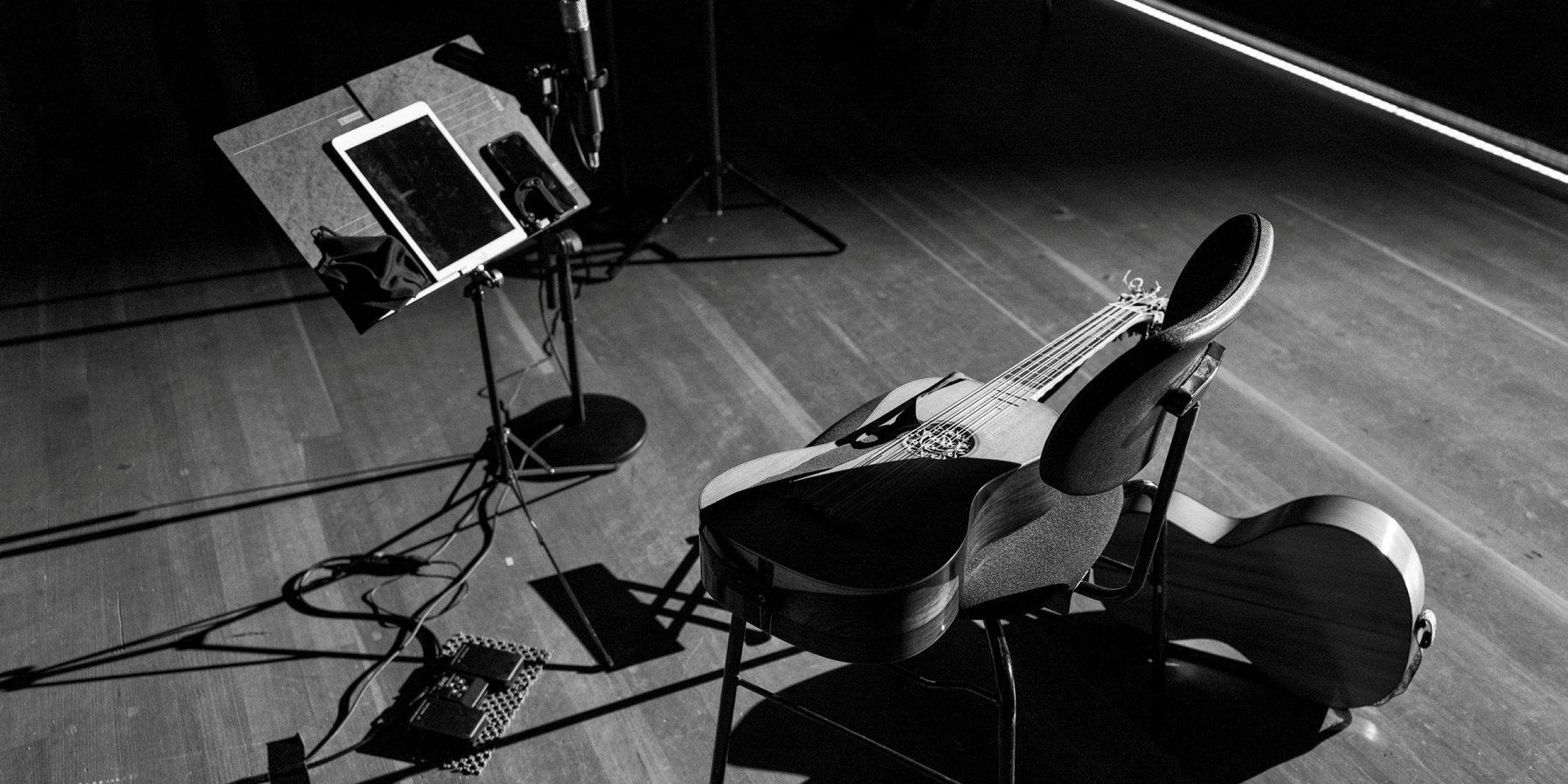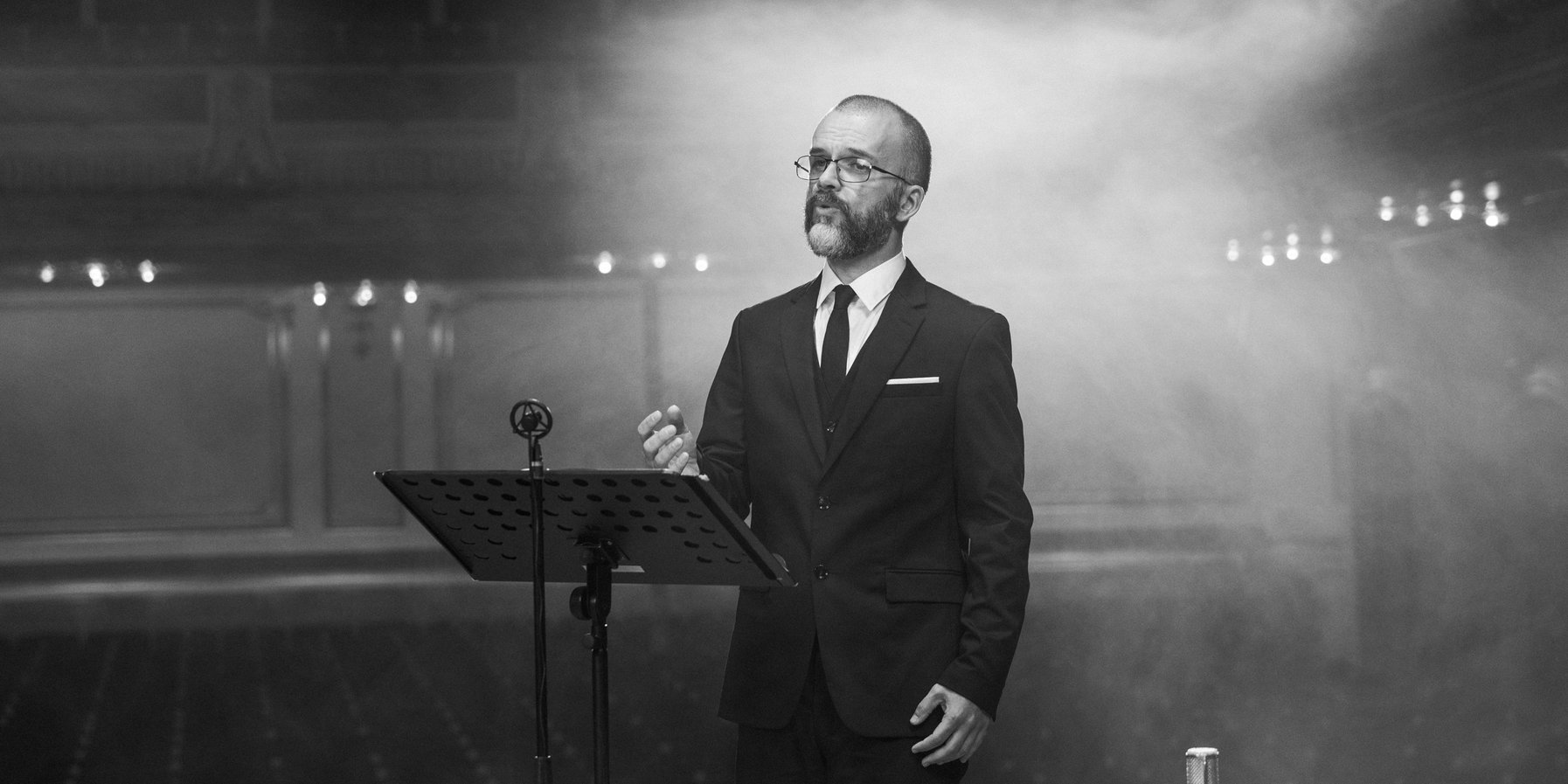10 August 1519 saw the beginning of one of humanity’s greatest adventures: Fernando Magellan, a seafarer in the service of the Spanish crown, embarked with a fleet to make the first circumnavigation of the globe. He took the writer Antonio Pigafetta with him, who – unlike Magellan himself – survived the trip. Pigafetta’s famous travel journal provides the basis for this musical evening entitled »The Last Ship«, presented by the Portuguese Baroque ensemble Sete Lágrimas to mark the 500th anniversary of Magellan’s death. On the musical journey from Seville, Argentina and Brazil to India and the Spice Island, we hear vocal and instrumental pieces from Spain and Italy, but also from distant lands like China.
Note: English subtitles available. Click on the video settings to activate.
Performers
Sete Lágrimas
Filipe Faria vocals
Sérgio Peixoto vocals
Sofia Diniz viola da gamba
Tiago Matias theorbo, baroque guitar
Juan de la Fuente Alcón percussion
Programme
»The Last Ship«
A musical journey from Italy via Brazil to Timor – follows explorer Ferdinand Magellan as he becomes the first man to sail around the world (1519–1522).
Duration: approx. 65 minutes
AT THE BEGINNING WERE SPICES :About the programme
World history is closely connected with the history of discoveries. In every era, people set out for unknown territory for a wide variety of reasons. Sometimes they had been driven from their native soil, sometimes they were looking for new channels to sell their merchandise, sometimes they were looking to disseminate their religion or extend their power. Or they were searching in distant lands for sought-after raw materials and exotic treasures. The encounters between alien peoples and cultures, sometimes voluntary and sometimes not, resulting from such excursions to the unknown had far-reaching consequences, as the new experiences influenced and changed both sides, the discoverers and the discovered. And not only what they ate and their social customs, but also expressions of culture and ritual like dance and music, literature, theatre and the fine arts.
The process of cultural exchange and intermingling is thousands of years old, and has been a constant source of mutual inspiration and fruitful integration, uniting, enriching and accelerating modernisation. Labels like »cultural melting pot« act as a hallmark of especially diverse lifestyles and culture scenes.
But in the course of the »post-colonial discourse« currently high up on the debating agenda, some critics have suggested that cultural transfer has not been a process of cheerful and unintentional mixing, but rather one of cultural appropriation. This criticism of dominant cultures that adopt the cultural characteristics of minorities points to the indisputable violence involved in every type of discovery or conquest, something that reverberates up to the present day.

And it's true that the driving force behind a mission of discovery is often ambivalent – as in the case of the adventure on which Portuguese explorer Ferdinand Magellan set out on 10 August 1519 in the service of the Spanish crown. His mission: to prove that Ptolemy's view of the world was incorrect. For it was by no means just Magellan's courage in attempting the first circumnavigation of the globe that placed his fleet of five vessels on a risky course. The proof that the world is actually spherical was just a side-effect of Magellan's journey, which actually had a solid economic goal: to find a western sea route to the Spice Islands in what is now Indonesia, thus breaking the Ottoman Empire's monopoly of the spice trade. It may seem hard to imagine now, but there was a time when pepper, nutmeg and cloves were weighed in gold.
Austrian writer Stefan Zweig described this connection well in his biographic novel »Magellan« of 1938: »The driving force behind the heroes of this age of discovery were the traders. This first heroic impulse to conquer the world was driven by entirely earthly motives: at the beginning were spices.« And even though Zweig's book give clear rein to the racist clichés of his time, he depicts quite candidly the underlying dynamics behind every wave of colonialisation: »The first Portuguese ships that sailed down the River Tagus towards an unknown destination aimed to make discoveries; the second fleet were still in search of peaceful trade with the newly-discovered territories; the third set of vessels consisted of warships. Inevitably, the three-part rhythm that will determine the entire colonial age was just starting.«
Zweig's Magellan biography is based on the account of the Italian scholar Antonio Pigafetta, who was a member of the expedition and one of only 18 men (240 had embarked) to return three years later after completing the first circuit around the world. Magellan himself did not survive: he died in 1521 during a hostile engagement with natives of the Philippines.

Pigafetta kept an accurate journal throughout the voyage, and his famous documentation of the trip provides the framework for the musical evening »Das letzte Schiff« (The last ship), which the Portuguese Baroque ensemble Sete Lágrimas has created to mark the 500th anniversary of Magellan's death.
»Portuguese seafarers like Magellan afforded Europe contact with the music of many countries and cultures. The Portuguese soul was certainly marked by these encounters, by the hope of a better future and of a return home, bringing with them the sounds and scents of distant lands.«
Filipe Faria
This programme follows the adventurous route leading from Seville via Argentina and Brazil to India and thence to the Spice Islands, also known as the Moluccas. In vocal and instrumental pieces, the ensemble explores the interpretation formulae of music both classical and popular from the 16th to the 20th century. The repertoire ranges the Portuguese fado and the Iberian villancico through Brazilian chorinho and Cape Verdean mornas to traditional songs from Timor, Macau, India and Brazil.
»Das letzte Schiff« forms part of a larger project entitled »Diaspora« that Sete Lágrimas has been pursuing since 2007; it concentrates on the music of all countries that have had contact with Portugal since the 15th century. »Our focus is on the encounters – musical, linguistic and stylistic – that have survived in the music of these cultures and of Portugal,« says tenor and ensemble leader Filipe Faria. The project is about phenomena of reciprocal contamination, due both to the export of models, forms and content and to their return. This is a huge research undertaking that oscillates between the challenge of pulsating artistic freedom and respect for the historic sources.«
Text: Regine Müller
Translation: Clive Williams
Supported by the Kühne Foundation, the Hamburg Ministry of Culture and Media, Stiftung Elbphilharmonie and the Förderkreis Internationales Musikfest Hamburg

















